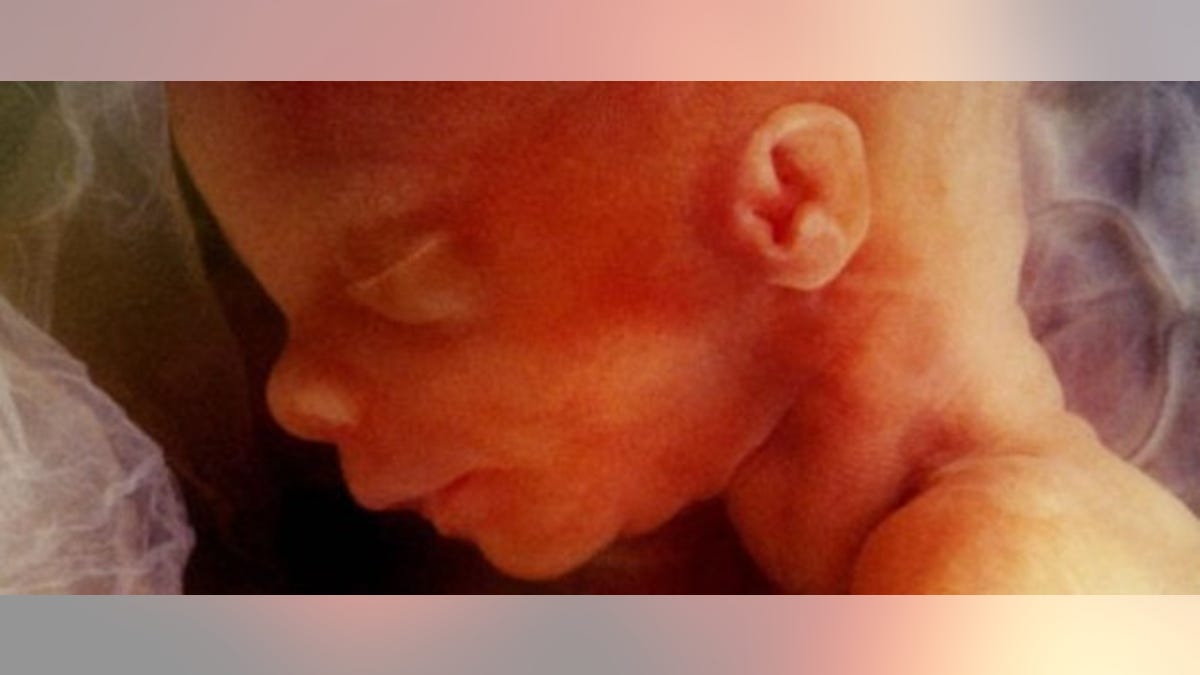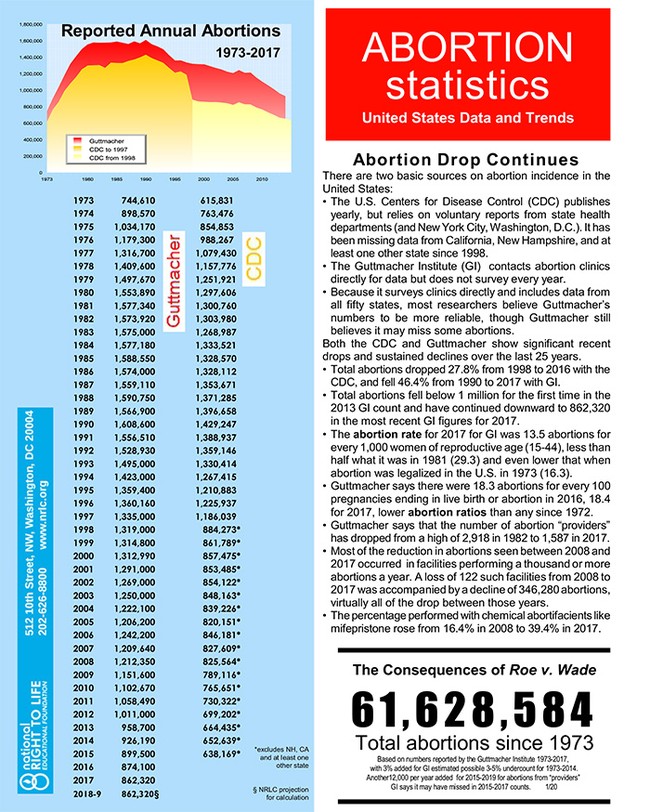Will the Justices Let Go of Abortion?
Overturning Roe v. Wade wouldn’t settle the issue, but it would create the possibility of a settlement.
Peggy Noonan Dec. 2, 2021 WALL STREET JOURNAL

The Supreme Court heard oral arguments Wednesday in Dobbs v. Jackson Women’s Health Organization. On Friday, under the court’s usual procedure, the justices would meet to hold a preliminary vote on their decision. A member of the majority will be assigned to write it. The court will review and amend that document and is expected to hand down its decision at the end of its term, in late June or early July.
This will be an intense and dramatic time for the court, which will likely decide one of two things. It may overturn 1973’s Roe v. Wade decision. That wouldn’t make abortion illegal in the U.S. but would revert the question to each state legislature. Some, through legislation designed to be triggered at the overturning of Roe, will guarantee full abortion on demand, as New York and California already have. Some will apply limits—15 weeks in the case of the Mississippi law the justices are considering. Some will likely ban all or nearly all abortions within their boundaries.
Overturning Roe would mean returning a furiously contested national issue of almost 50 years standing to the democratic process. This wouldn’t “solve” the problem or “end” the struggle. It would bring the responsibility for solving and ending it closer to the people. In the short term it would cause new disruption and renewed argument, as Roe itself did when it negated abortion statutes in 46 states and the District of Columbia. Deep-blue states will go deep blue, red ones will go red, and purple states will tend toward more moderate laws. It will take time to play out. Politicians who stray too far from true public opinion, as opposed to whatever got burped up in a recent poll, will fairly quickly face backlash at the polls.
It won’t be settled for a few years. But then it will settle. This path—overturning—is the closest America will get to justice and democratic satisfaction on this issue.
Or the court may vote not to overturn Roe but in effect to pare it back, allowing state limits such as Mississippi’s while letting stand some constitutional right to abortion. The court would be saying, in effect: We cannot end the national abortion argument, but we can manage it. This decision would be, in a court maintaining a conservative majority, a gradualist approach that will guarantee future cases.
I believe there is a general view among the conservative justices that Roe was wrongly decided, a bad decision that should be overturned. But they will be under pressure to hold to precedent, based on the understandable argument that it is a very big thing to overturn such a momentous decision—especially in a divided country, especially in a time of wavering faith in institutions and especially with a case as famous as Roe. They will be tempted to choose narrower and less dramatic path.
It is not unrealistic for the court to fear undermining its image. Every overturning of precedent involves at least some hypothetical damage to the court’s credibility: You got it wrong last time, maybe you’re wrong now too. On the other hand, as the justices well know, precedent has been overturned before in important and dramatic cases, and one could as well argue that a serious, well-ordered decision grounded in law and history might leave a significant portion of the country—half of it, which disapproves of abortion—with renewed respect for the court. They would see it correct a decision that has been faulted by stalwart legal minds of left as well as the right. Archibald Cox wrote in 1976 that it had failed to consider “the most compelling interest of the State in prohibiting abortion: the interest in maintaining that respect for the paramount sanctity of human life.” Ruth Bader Ginsburg also questioned its reasoning and observed in 1985 that Roe appeared “to have provoked, not resolved conflict.”
Some would experience overturning as aggressive and extreme, but to others it will look like an honest grappling with error that is long overdue.
Foes of overturning make the argument that such a decision would make the court look hopelessly political. Justice Sonia Sotomayor made that charge during oral arguments: the court might not “survive the stench” of a ruling perceived as “political.”
But the court is a political body because it is a human body that inevitably reflects reigning political currents. Roe too reflected them: Justices wanted a thing to happen in the name of justice for women and found a way to do so by spying previously unseen “penumbras, formed by emanations” (a clause from an earlier case) from the law. It can be argued that it would increase our faith in our institutions to see that serious objections that lasted half a century, and would have lasted longer, were finally heard.
Here it is good to ask: Why has abortion so roiled this country for half a century? In other cases, when courts saw a new constitutional right or liberalized the social order in some way, the public acclimated. Brown v. Board of Education was accepted over the years, gay marriage was followed by public acceptance—the court had spoken. When the court took prayer out of the public schools in 1962 and held that interracial couples had a right to marry in 1967, high public disapproval on those issues immediately began to decline. “But abortion was different. Opposition to Roe became more hostile after its issuance,” writes Joshua Prager in his history of Roe v. Wade, “The Family Roe.”
There are many reasons, but I think the biggest is that all those other rulings are about how to live. Roe involved death, inescapably and at its heart. We have spent 40 years looking at sonograms and carrying in our wallets or phones the black-and-white copy of the ultrasound that, when you first saw it, you thought: “This is real.” “She’s already got my feet.” It’s hard to ignore the meaning of that: She’s there.
It speaks well of America that Roe was the struggle that wouldn’t end.
Mr. Prager’s book is stupendous, a masterwork of reporting. Over 11 years he tracked down almost everyone involved in the case, and tells how it came about.
We can’t shake the picture of the wholesome 1950s and ’60s as a time of American innocence. But no country is “innocent,” and so many of the central players in the drama came from some kind of deep dysfunction—sadness, family chaos, sirens in the night. Norma McCorvey, the Roe in the case, was a remorseless, compulsive liar who variously claimed to have been raped, gang-raped, beaten, shot at, preyed on by lesbian nuns. As I read her she was a sometimes charming, often funny sociopath, always uninterested in the effect on others of her decisions.
There is the brilliant lawyer who brought the first case and wound up destitute in a heatless house in East Texas; the prickly, eloquent pro-life leader who wound up unappreciated, alone and a hoarder. There is the writing of the Roe decision itself. And there is the idealism of many on both sides who were actually trying to make life more just. Mr. Prager is pro-choice, and some of his analysis reflects that, but the power of his reporting overwhelms any bias. If you want to understand Roe more deeply before the coming decision, read it.


__

